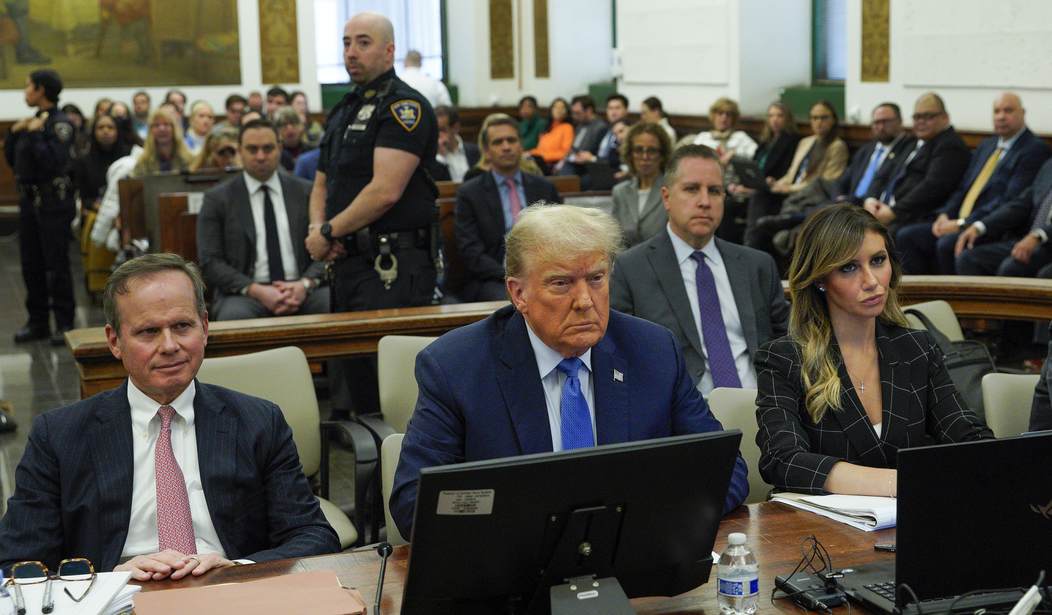It is becoming quite evident that former President Donald Trump is still popular, especially in Florida. People at the GOP summit held in Orlando over the weekend showed a lot of excitement, proving that he's still a “big deal” in the Sunshine State. Despite the legal efforts underway to stop him, many of his supporters are refusing to let him go and new endorsements were added from several Florida elected officials.
Days before the Republican Party Freedom Summit, a judge in New York issued an expanded gag order to stop Trump (and his legal team) from talking about a fraud case. At the same time, a federal appeals court lifted a gag order in the federal election interference case. While these actions are contradictory, and admittedly, confusing, the bottom line is that many of these legal efforts are aimed at preventing Trump from running. And it is backfiring.
Gag orders, some argue, are a necessary evil to safeguard due process in legal proceedings. They seek to prevent parties involved in a case from making statements that could prejudice the outcome, particularly in high-profile trials. These restrictions ostensibly ensure a fair and impartial trial, shielding potential jurors and the public from undue media influence. However, when gag orders are applied to a former president as polarizing as Trump, and when they are weaponized against him, the situation takes on an unprecedented dimension.
The First Amendment of the United States Constitution enshrines the right to free speech, a cornerstone of the American Bill of Rights. Trump's supporters contend that this gag order infringes upon this fundamental right, unfairly constraining his ability to express his views openly to the public. While the intention may be to ensure a fair trial, it inadvertently portrays Trump as a victim, affording him a platform to rally his base and gain sympathy – and it is doing exactly that. His performance in the polls and reaction from the crowds prove it.
Recommended
Any fines or penalties (threatened or imposed) on Trump for violating the gag orders further complicate the situation. His recent comments about a "very partisan" individual sitting alongside the judge landed him in hot water. These fines, meant to discourage inappropriate comments such as these, paradoxically paint Trump as a martyr, unjustly persecuted by the legal system.
The narrative of a victimized Trump not only resonates with his base but also strengthens his appeal as a political figure to millions who feel the U.S. system is limiting their voices.
It may sound outrageous, but by targeting Trump, one could argue that the attention he garners can be considered a de facto campaign contribution. He reaps substantial benefits even when paying for his free speech. Just look at the prime media time for Trumps court appearances!
Penalties including very serious threats of jail time raise concerns about the practical effectiveness of gag orders in today's digital information age. In an era where social media and instant news flash over every corner of the internet, can a gag order truly prevent information from spreading? Trump's statements have a way of permeating the public discourse, even within the confines of a courtroom. The media closely tracks his every move, making containment challenging.
Perhaps the most concerning aspect of imposing a gag order on a political candidate is the perception of interference. These trials seem politically motivated and strategically timed to influence elections – just not in the way it is currently working out for the left.
Restricting free speech during a pivotal moment, such as an election campaign, raises fundamental questions about the impartiality of those bringing charges and presiding over cases. No candidate, let alone a presidential contender, should be subject to speech restrictions that impede their ability to communicate their platform and engage with voters.
We should all want to hear what a candidate for office has to say. While Chris Christie spent half his time arguing with the Florida GOP Freedom Summit, and was nearly booed off the stage, he still should enjoy the right and opportunity to speak freely.
Balancing the preservation of a fair trial with the upholding of First Amendment rights is not a novel challenge. However, when a former president is involved, the stakes are higher, and the consequences are more profound. The courts must delicately navigate between ensuring a fair trial and respecting the foundational principles of our Republic and the right to free speech.
Striking a balance between preserving the principles of the First Amendment and delivering justice is a challenge that warrants close attention, particularly when dealing with a former President and/or a presidential candidate. If their free speech can be threatened, so can yours.
Shaun McCutcheon is a Free Speech advocate, an Alabama-based electrical engineer, the founder of Multipolar, and was the successful plaintiff in the 2014 Supreme Court case McCutcheon v. FEC.

























Join the conversation as a VIP Member